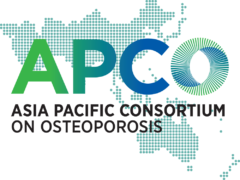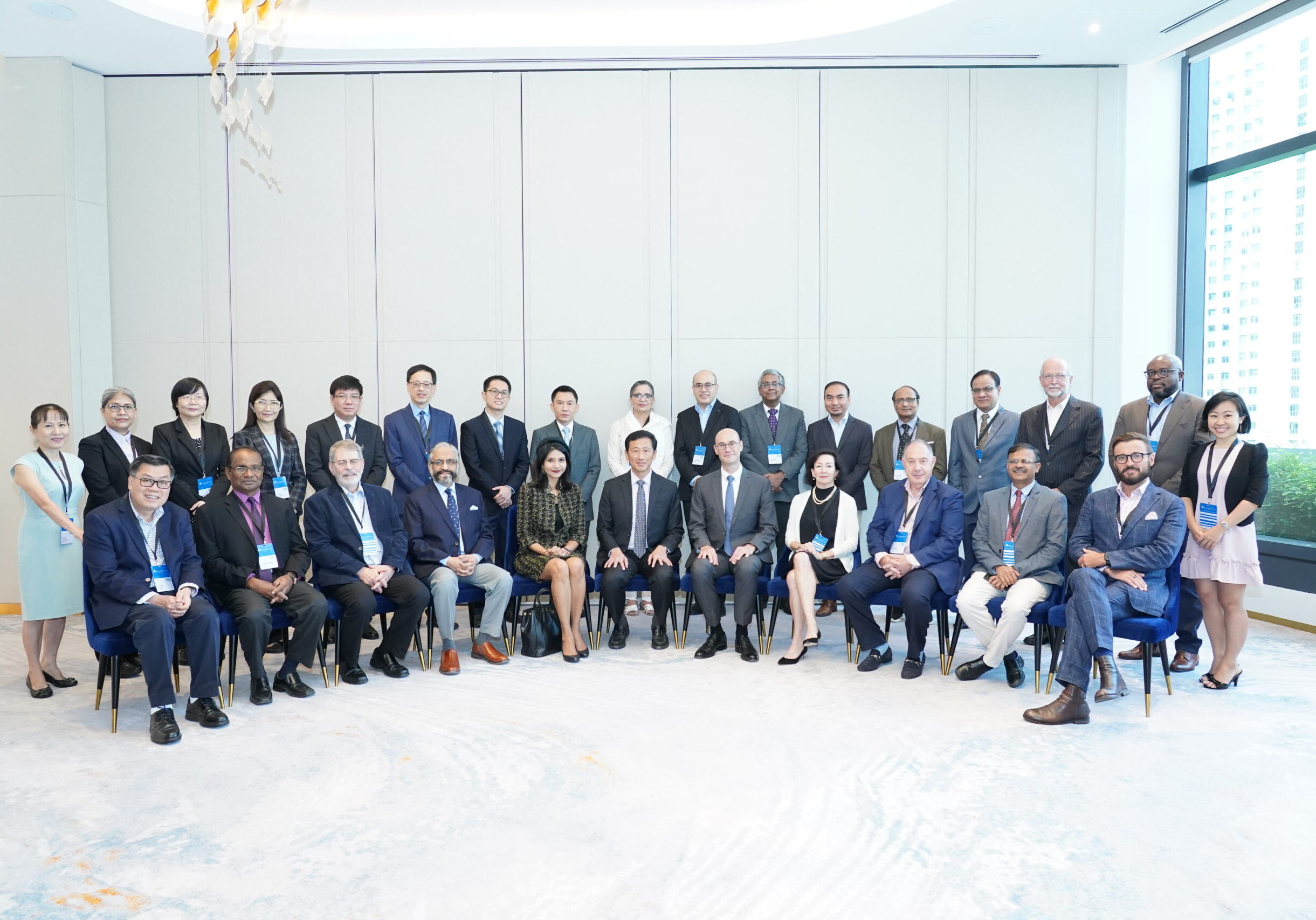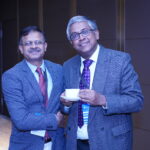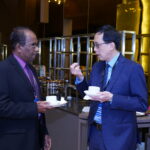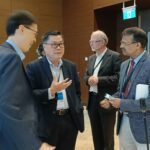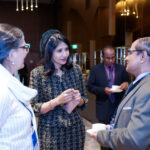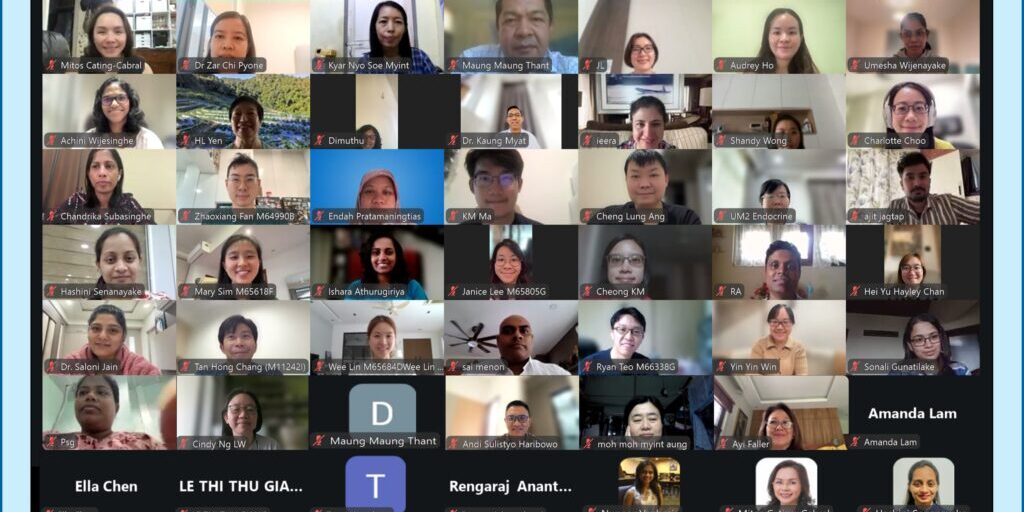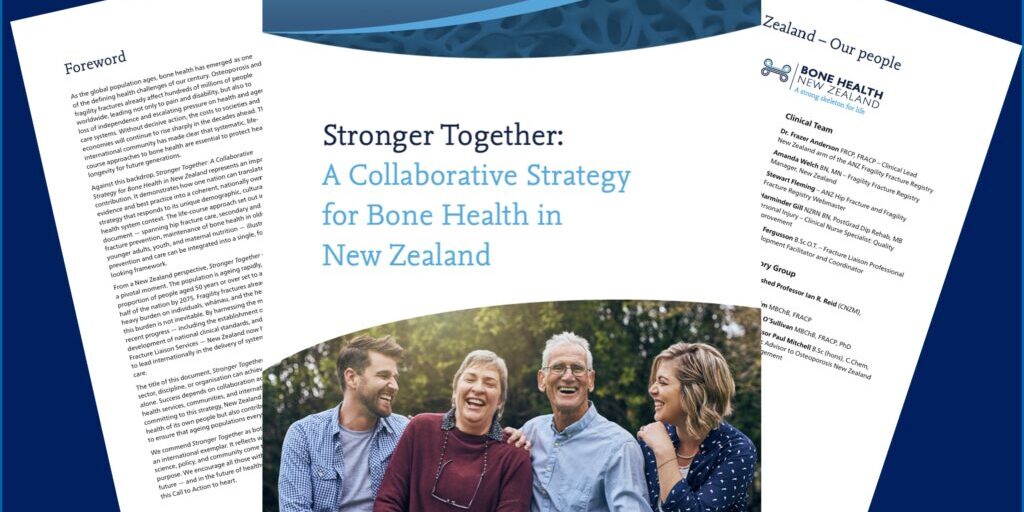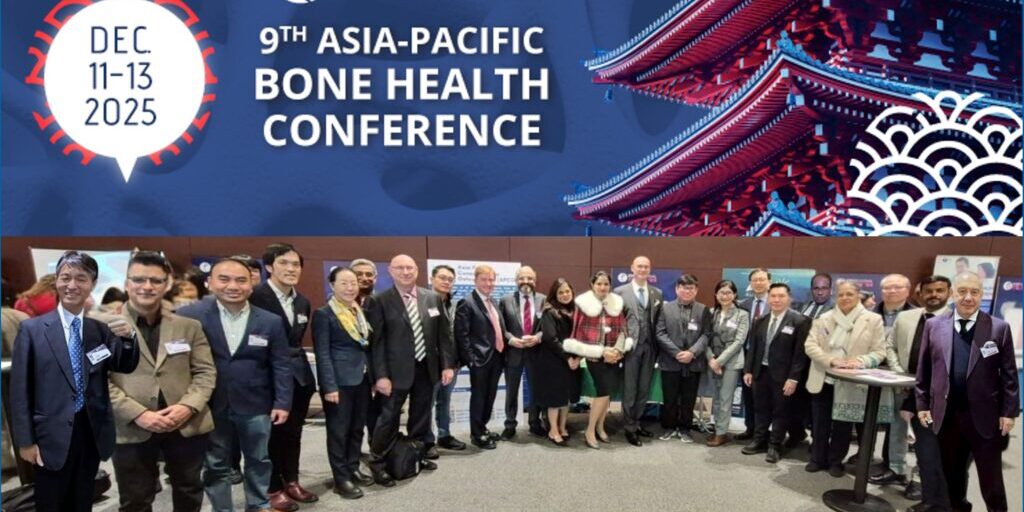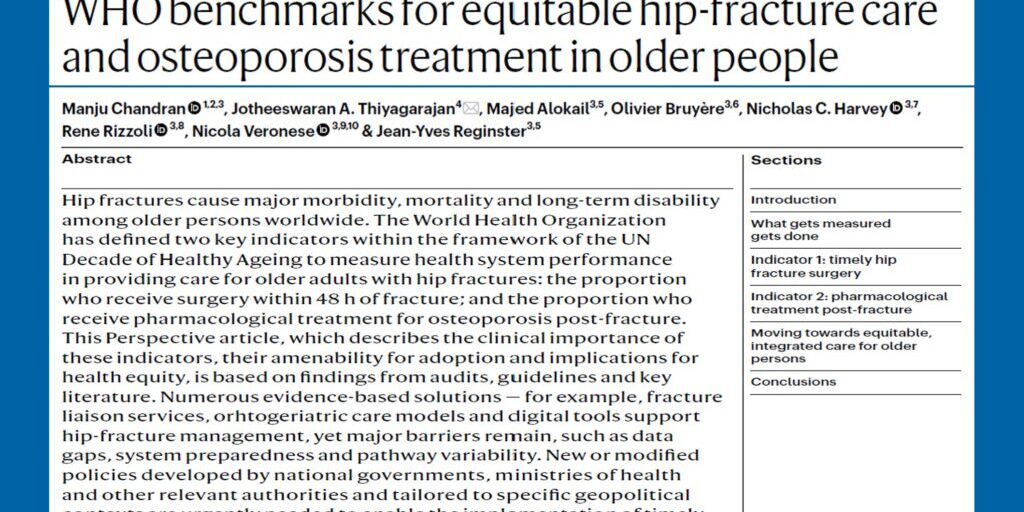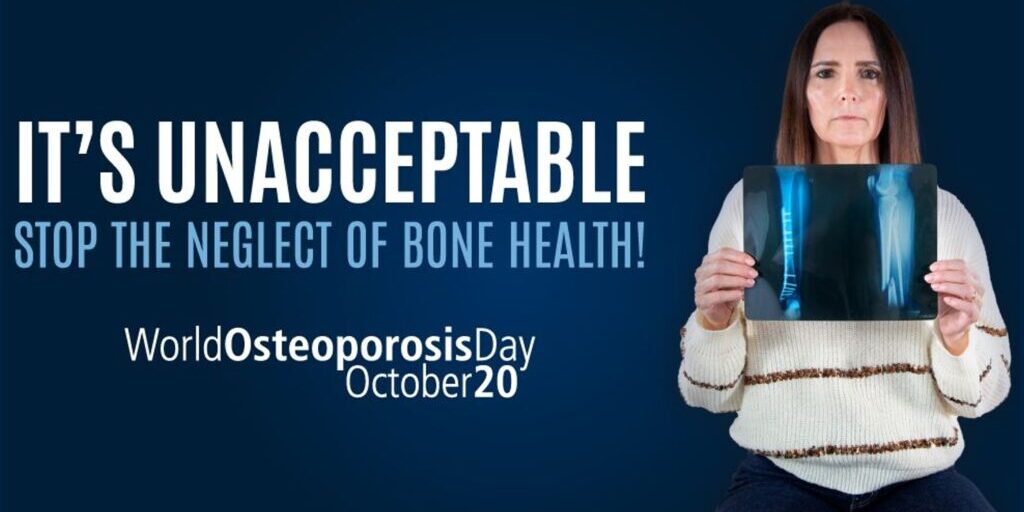APCO Scientific Summit in Singapore
Stemming the bone health crisis in the world’s most populous & fastest ageing region
Leading bone experts from the Asia Pacific convened in Singapore on Saturday, (December 10, 2022) for the Asia Pacific Consortium on Osteoporosis (APCO) Scientific Summit, to further their vision of reducing the burden of osteoporosis and fragility fractures in the world’s most populous and fastest ageing region.1
Marking APCO’s first ‘physical’ Summit since May 2019 when the organisation was launched, APCO members, representing 19 Asia Pacific countries and regions, heard from a host of eminent speakers at One Farrer Hotel, Singapore, including the Summit’s Guest of Honour, Singapore’s Minister for Health, Mr Ong Ye Kung.
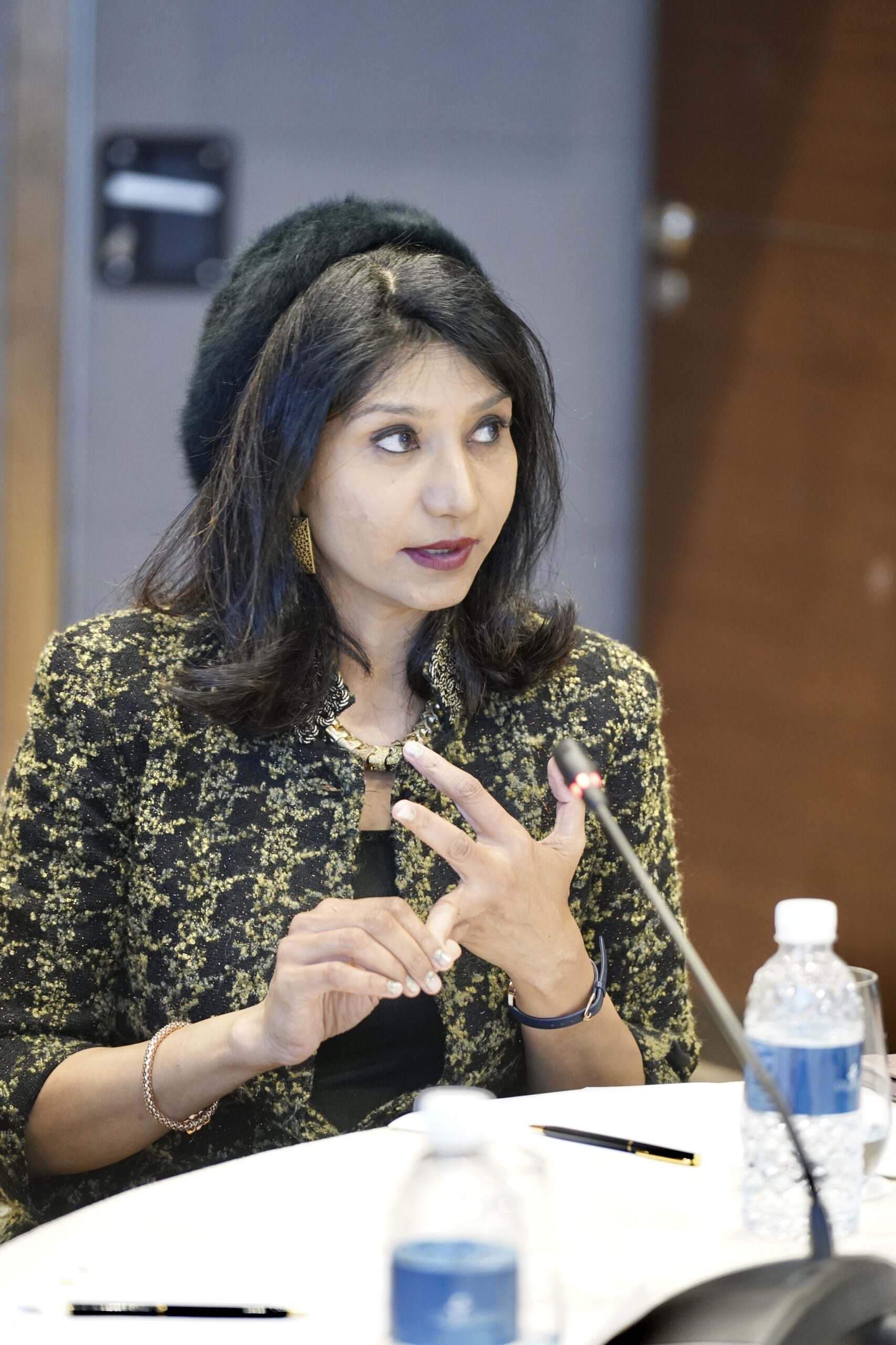
The eagerly anticipated Scientific Summit garnered significant attention in news media prior to the event, with an interview on Channel News Asia-Singapore Tonight of APCO Executive Committee Chairperson, Professor Manju Chandran, Singapore, and APCO Executive Committee member and Chief Executive Officer of the International Osteoporosis Foundation (IOF), Dr Philippe Halbout, Switzerland. The interview afforded an opportunity for the leading osteoporosis experts to share insights, and reflect on APCO’s vision and mission.
According to Prof Chandran, Senior Consultant Endocrinologist and Director, Osteoporosis and Bone Metabolism Unit, Singapore General Hospital, 2021 IOF Olof Johnell Science Award Winner, and 2023 International Society of Clinical Densitometry (ISCD) Clinician of the Year Awardee, “A perfect storm of a rise in osteoporosis among Asia Pacific populations is expected to occur due to the region’s rapidly aging population, mounting urbanisation, and subsequent increase in sedentary lifestyles.2
“Unless urgent steps are taken, we will be facing an epidemic of osteoporotic fractures that could have been avoided through appropriate preventive measures, early diagnosis, and treatment.
“APCO members are charged with developing tangible solutions to the challenges facing osteoporosis management in the world’s most populous, linguistically, and culturally diverse region. Our committed group of 46 osteoporosis experts representing 19 countries and regions, are confident we can counter these challenges, if armed with support from local governments, policy makers, healthcare providers, philanthropic organisations, pharmaceutical companies, and other stakeholders from both the private and public healthcare sectors throughout the region,” said Dr Chandran. Access her presentation here.
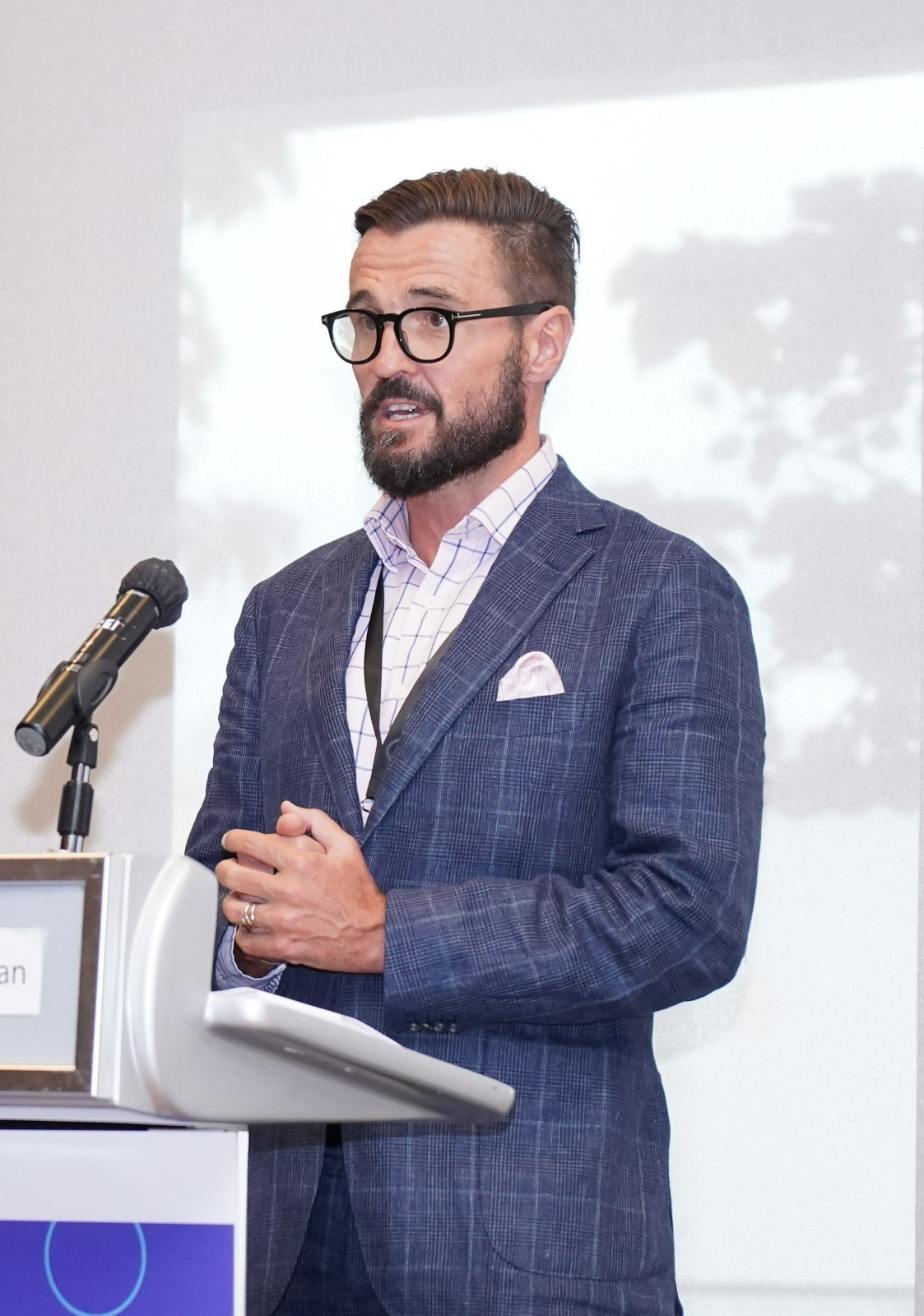 Country Medical Director, Amgen Australia, and Summit MC, Dr Cae Tolman, Australia, reflected on APCO’s evolution over the past three years, including its various activities and successes, and reinforced the need to future-proof the organisation, through strategic thinking, and planning.
Country Medical Director, Amgen Australia, and Summit MC, Dr Cae Tolman, Australia, reflected on APCO’s evolution over the past three years, including its various activities and successes, and reinforced the need to future-proof the organisation, through strategic thinking, and planning.
Minister Ong Ye Kung reflected on the healthcare challenges facing the Asia Pacific region, and how his country, Singapore, is working to shift the emphasis of healthcare away from the hospital and into the community. He explained that through the “Healthier SG” initiative, Singapore will prioritise preventive care for all its residents, with key shifts including lifestyle modification, regular health screening, and enrolment with one primary care provider. These aspects are designed to build a healthy ecosystem of support for better health across the nation. Access his speech here.
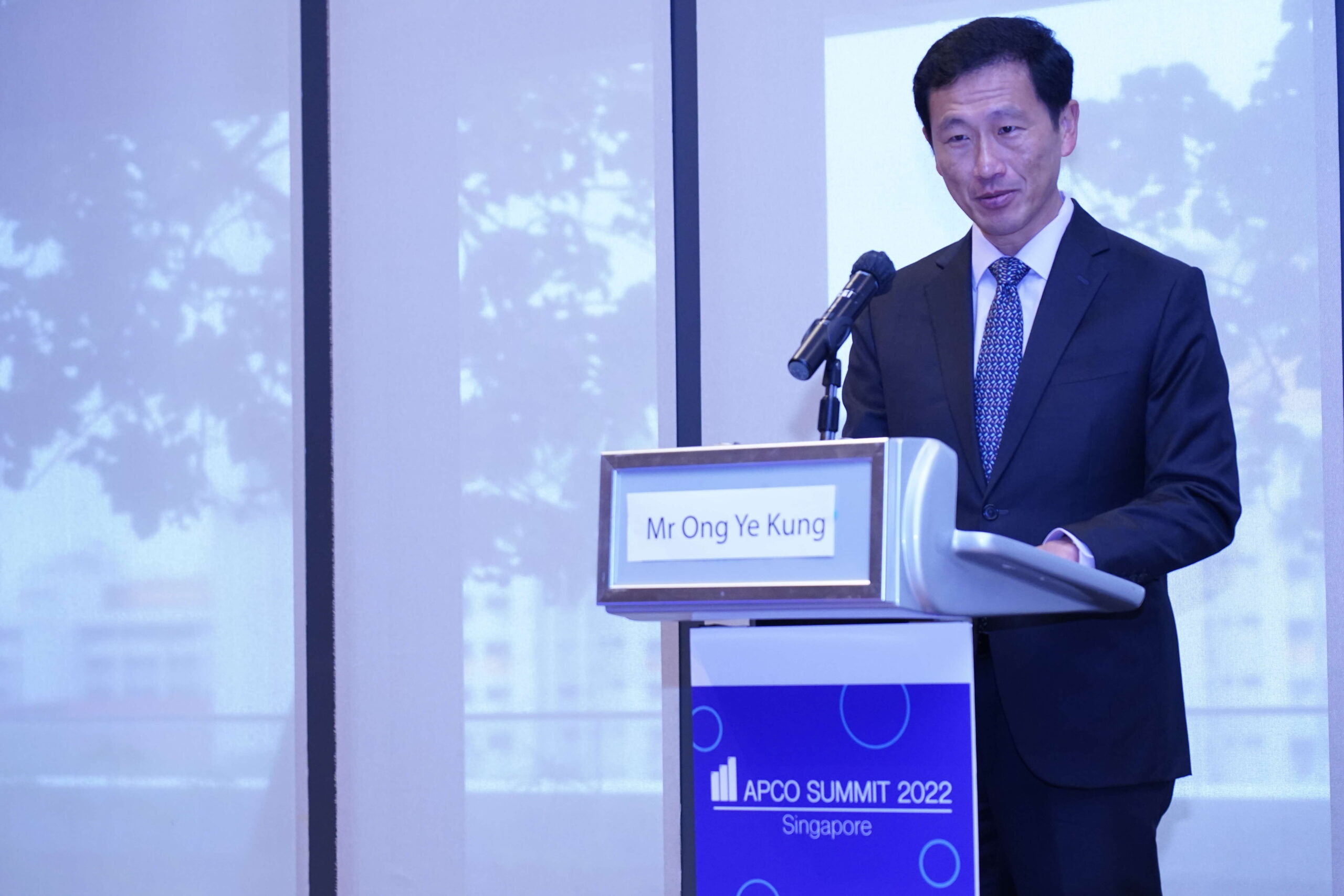
Osteoporosis is greatly under-diagnosed, and under-treated in Pacific, even among those at highest risk who have already fractured.3 Concerningly, over the next two decades, a staggering 319 million people within Asia Pacific aged 50+ are projected to be at high risk of osteoporotic fracture.4 Moreover, the number of hip fractures are forecast to more than double in Asia Pacific, from 1.13 million in 2018, to 2.54 million in 2050.4
“Singapore, a country with one in five people over the age of 65 years, has one of the highest numbers of osteoporotic fractures in the world, which is predicted to increase exponentially in the next two decades.5 Urgent action must therefore, be taken to curb the immense socio-economic and physical impacts posed by the disease, and the subsequent complication of fragility fractures,” Dr Chandran said.
As the world’s largest, non-governmental organisation dedicated to the prevention, diagnosis and treatment of osteoporosis and related musculoskeletal diseases, the IOF’s vision is: “a world without fragility fractures, in which healthy mobility is a reality for all, Dr Philippe Halbout explained.
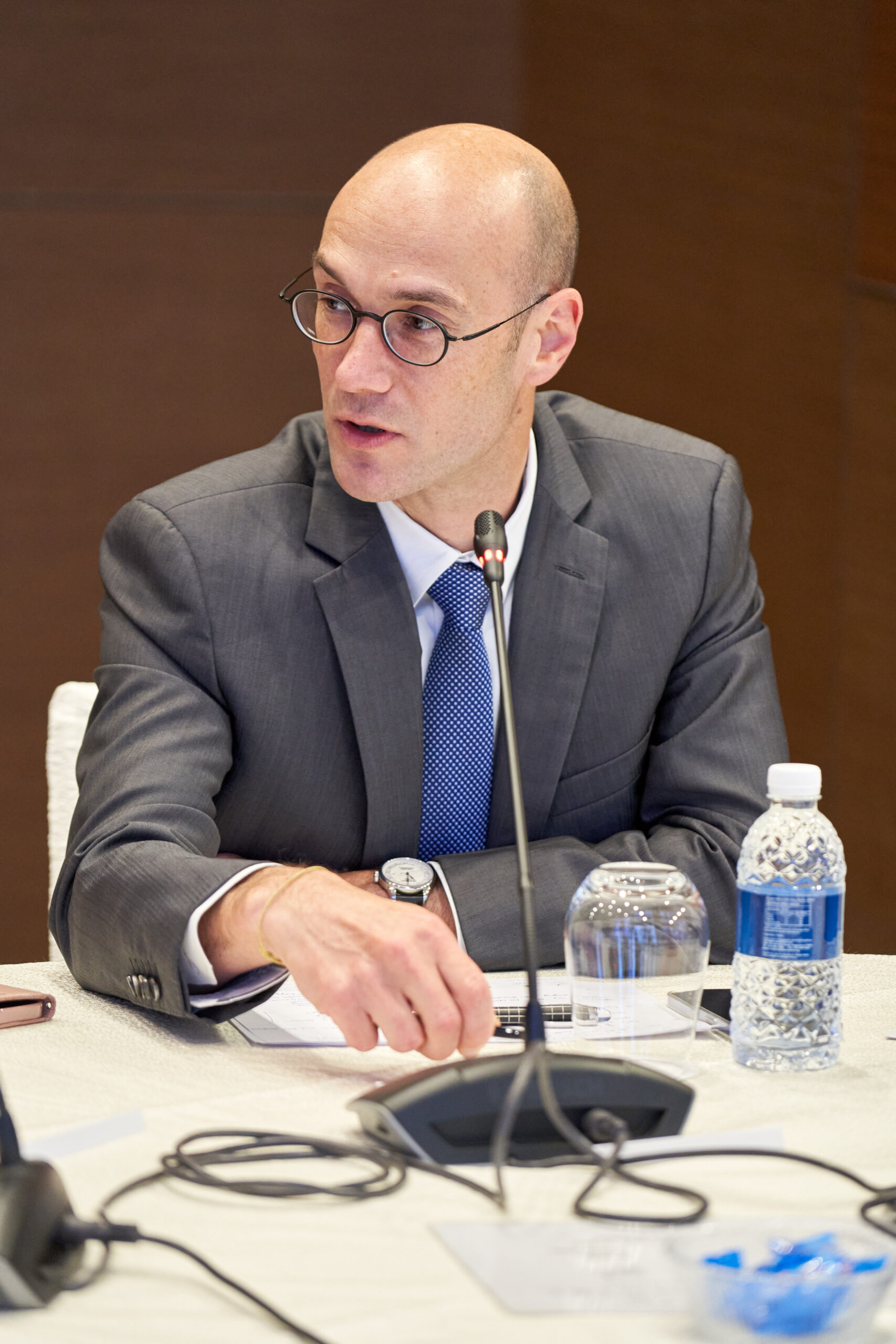
“Given the Asia Pacific region will bear the brunt of osteoporotic fractures over the next few decades, the IOF recognises urgent action is required to stem this tide. It is for this reason, that we continue to lend strong support to APCO – an organisation that in little more than three years, has achieved significant milestones in its fight against the silent disease that is osteoporosis,”2 he said.
Chairman and Head of the Endocrinology and Diabetes Division, MAX Healthcare, Gurgaon, Padma Booshan recipient (one of India’s highest civilian awards), IOF President’s Award winner, and APCO member, Prof Ambrish Mithal, India, shares similar concerns about the trends impacting musculoskeletal health in the world’s fastest ageing region.
“Low levels of calcium and vitamin D intake, coupled with high levels of smoking, which have a detrimental impact on bone and muscle health, are prevalent in several countries in the region. However, striking differences exist across the region regarding the prevalence of fractures, robustness of healthcare systems, and access to care.
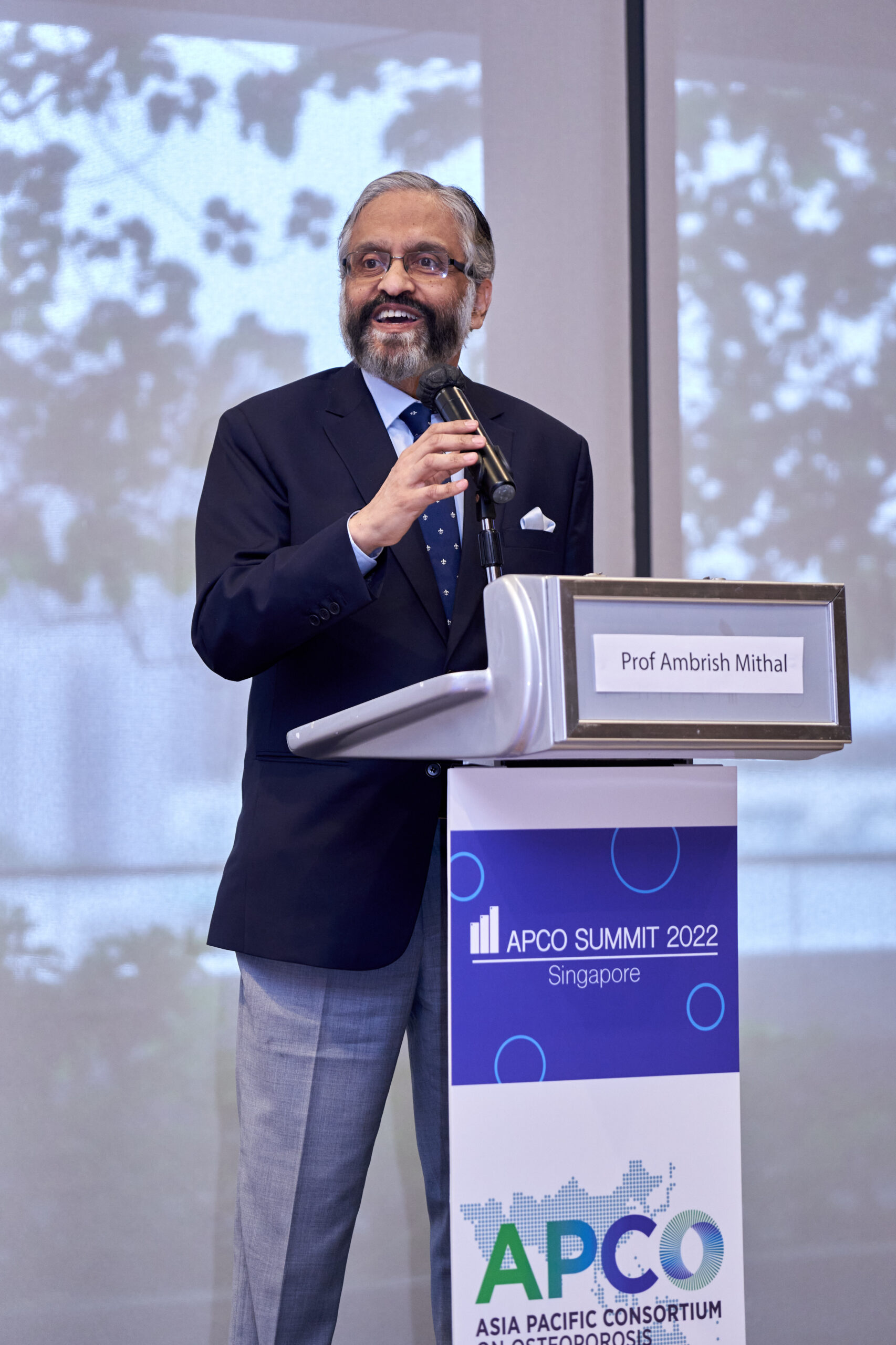 “In 2009 and 2013 respectively, the IOF released status reports (the Asia Pacific Audits) examining the overall patterns of fracture prevalence and osteoporosis care in the region. While progress has been made in several fields over the past decade, concerningly, huge gaps remain. In most countries, osteoporosis is still a low priority, and unfortunately, competes for attention with better understood diseases, such as heart disease and cancer. Consequently, bone health attracts little government support and funding,” Prof Mithal said.
“In 2009 and 2013 respectively, the IOF released status reports (the Asia Pacific Audits) examining the overall patterns of fracture prevalence and osteoporosis care in the region. While progress has been made in several fields over the past decade, concerningly, huge gaps remain. In most countries, osteoporosis is still a low priority, and unfortunately, competes for attention with better understood diseases, such as heart disease and cancer. Consequently, bone health attracts little government support and funding,” Prof Mithal said.
More recently in India however, significant focus has been placed on generating physician, particularly orthopaedic surgeon, awareness and understanding of the importance of diagnosing, and treating, osteoporosis, with support from the IOF and Asian Societies. As a consequence, “awareness of osteoporosis in India is now much higher,” said Prof Mithal.
“The APCO Summit therefore, represents an ideal opportunity for representatives from multiple countries in the Asia Pacific, to come together, to share experiences, and to brainstorm ideas to tackle this monumental, escalating public health issue.”
During her presentation, Regional Vice-President for Amgen Asia, and leader of its Global Health Access Program, Dr Victoria Elegant, Hong Kong, reflected on the imperative need for people around the world to secure access to healthcare, explaining “This involves a group of committed people working together, to improve the health ecosystem, so they are ready, and able, to treat patients.
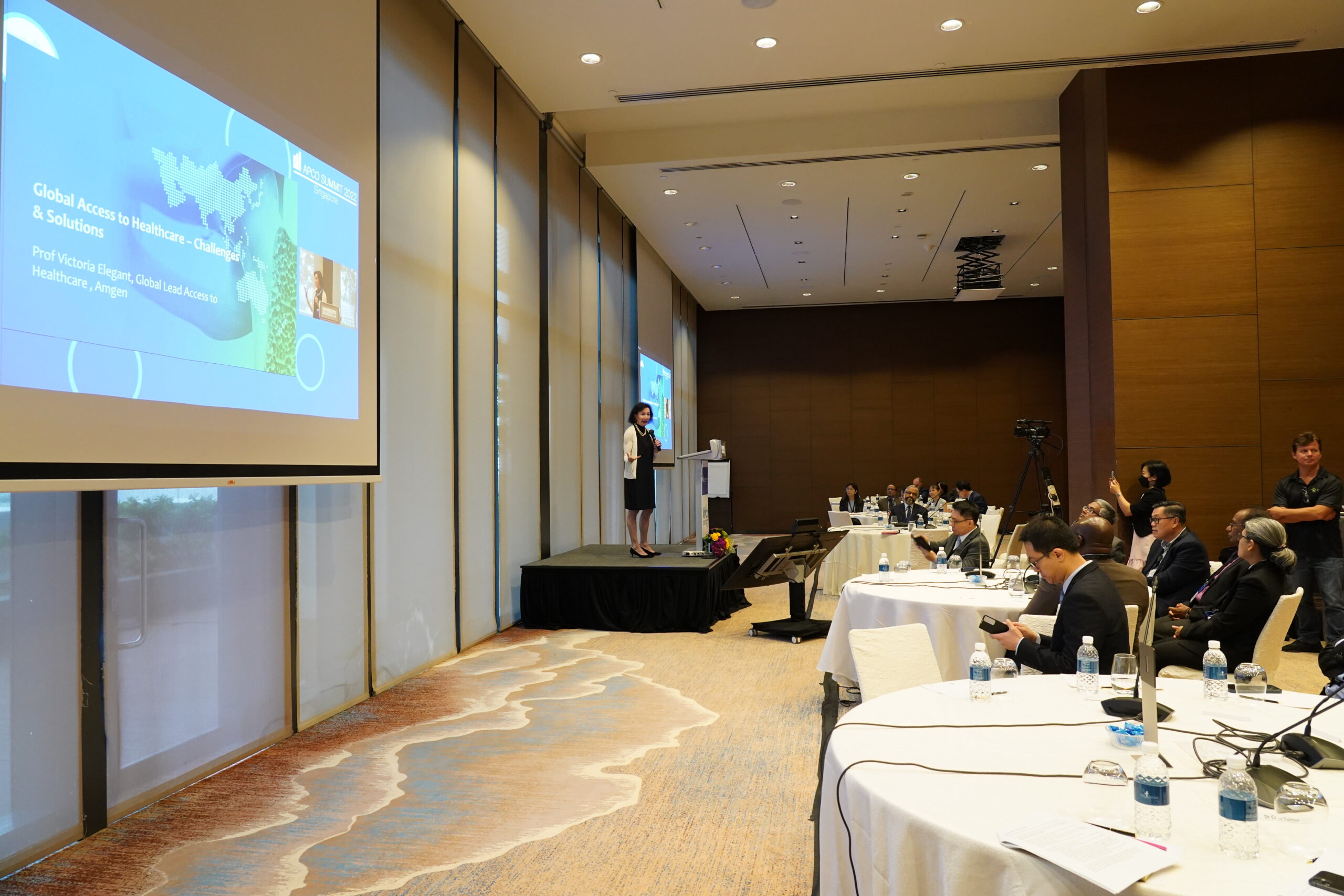 “You [APCO members] are a living example of what is being done to achieve change. APCO is a fantastic example of how people from various health care sectors have all come together, to improve the management of osteoporosis,” Dr Elegant explained.
“You [APCO members] are a living example of what is being done to achieve change. APCO is a fantastic example of how people from various health care sectors have all come together, to improve the management of osteoporosis,” Dr Elegant explained.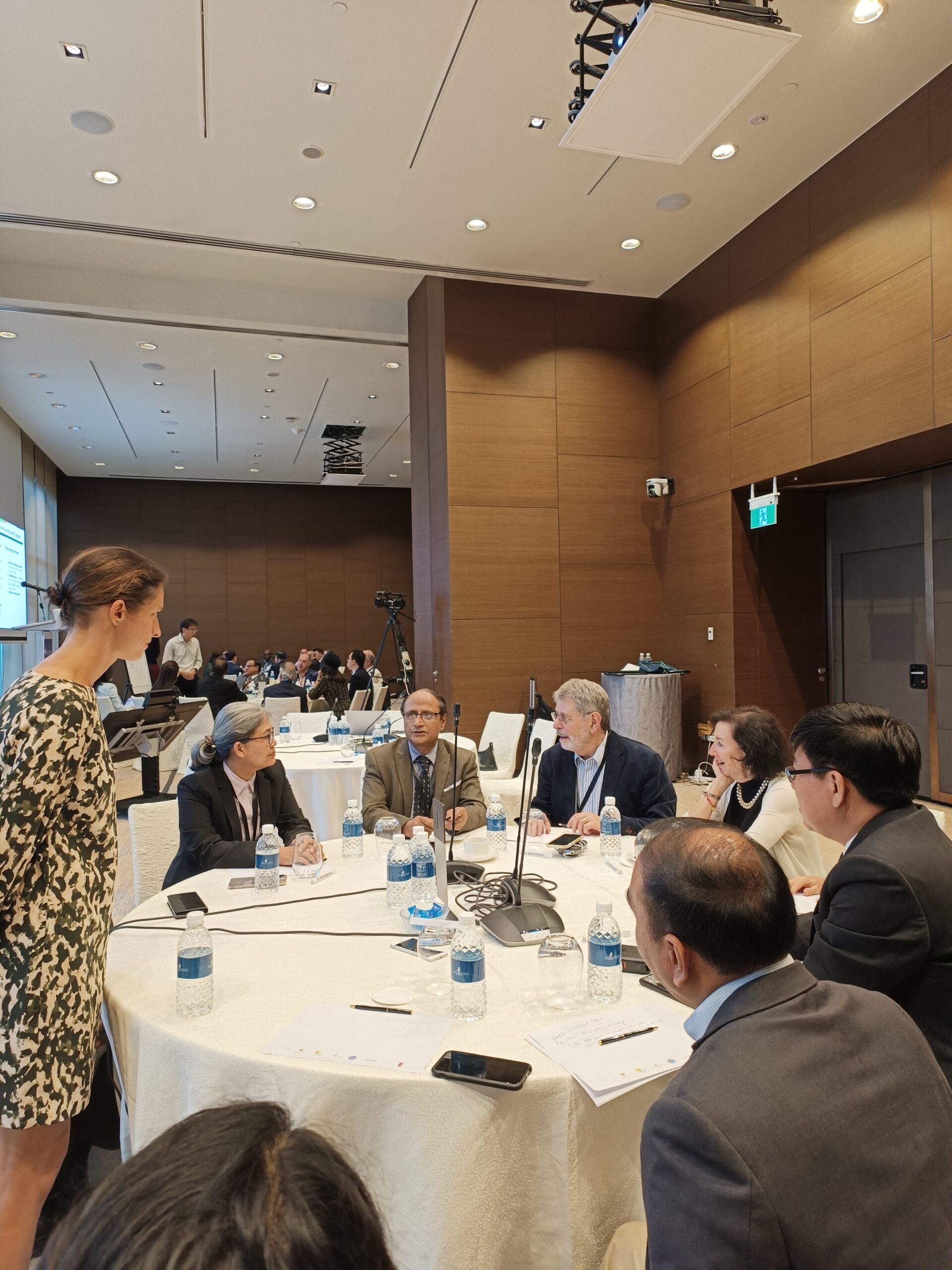
The afternoon of the Summit was devoted to a Co- Creation workshop facilitated by Access Health International, South East Asia, that aimed to build on the momentum generated through the Consortium’s accomplishments in 2022, by converging APCO members in the unique hybrid setting of the Summit. The workshop engaged APCO members around a common goal of identifying gaps in osteoporosis care in the Asia Pacific, and co-creating solutions to minimise the burden of osteoporosis in the region. The workshop saw the members engage in lively and interactive discussions, that not only helped to identify the challenges they faced while implementing APCO’s mission of engaging with policymakers, health care providers and the public over the last three and a half years since the organisation’s inception, but also served to refine APCO’s project roadmaps for 2023, and beyond, and to elucidate, through the generation of concrete and actionable strategic plans, projects for the Consortium to consider taking forward.
APCO Summit recommendations to address the projected growing burden of osteoporosis and fractures in the Asia Pacific focused on:
- Education and training of healthcare professionals;
- Quality improvement and secondary fracture prevention;
- Prioritising the prevention of musculoskeletal disease at a policy level;
- Enhancing research to amass evidence;
- Improving diagnosis and treatment accessibility and reimbursement;
- Creating national prevention programs; and
- Heightening public awareness and patient support.
Dr Chandran concluded the APCO Summit by stating that it had afforded the organisation “direction regarding the various challenges faced by our individual members, and how we should proceed in the coming years”. She encouraged the APCO members to continue to demonstrate their commitment to the cause of osteoporosis, stating “You have been hand-picked for APCO based on your expertise, history and commitment to musculoskeletal diseases, and because your voices are extremely important.”
About APCO
The Asia Pacific Consortium on Osteoporosis (APCO)’s mission is to engage with relevant stakeholders, including healthcare providers, policy makers and the public, to help develop, and implement, country and region-specific programs for the prevention and treatment of osteoporosis, and its complication of fragility fractures, in the Asia Pacific. Since APCO’s formation in May 2019, the organisation has developed:
- The APCO Framework – a pan-Asia Pacific ‘Framework’ for the implementation of minimum clinical standards across the region;
- APCO Bone Health QI Tool Kit to enable healthcare providers worldwide, to benchmark their practices against the clinical standards proposed in The APCO Framework;
- APCO HCP Peer to Peer Education Modules – a world-first, interactive, educational osteoporosis resource for healthcare professionals.
To learn APCO’s plans for ongoing multi-sector, healthcare professional engagement and cooperation to stem the looming bone health crisis in the Asia Pacific region, commencing next year, and beyond, continue to visit our blog and follow our LinkedIn channel – asia-pacific-consortium-on-osteoporosis.
References
- International Osteoporosis Foundation (IOF). A fracture every 3 seconds worldwide.That’s osteoporosis! 2019 [cited Dec, 2022]; Available from: https://tinyurl.com/55hh4psc.
- Chandran M, e.a., Development of the Asia Pacific Consortium on Osteoporosis (APCO) Framework: clinical standards of care for the screening, diagnosis, and management of osteoporosis in the Asia-Pacific region. Osteoporos Int., 2021. 32(7): p. 1249-1275.
- International Osteoporosis Foundation (IOF). Key statistics for Asia. [cited Oct, 2022]; Available from: https://www.osteoporosis.foundation/facts-statistics/key-statistic-for-asia.
- Cheung, C.-L., et al., An updated hip fracture projection in Asia: The Asian Federation of Osteoporosis Societies study. Osteoporosis and sarcopenia, 2018. 4(1): p. 16-21.
- Chandran, M., et al., The health and economic burden of osteoporotic fractures in Singapore and the potential impact of increasing treatment rates through more pharmacological options. Arch Osteoporos, 2019. 14(1): p. 114.
